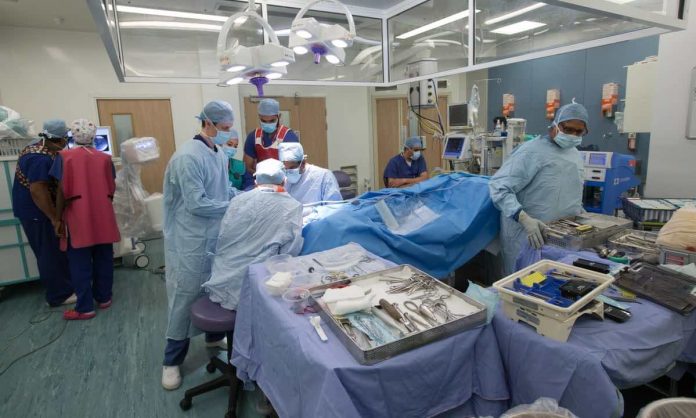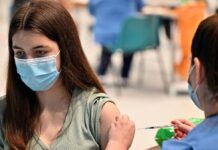The NHS has today announced a £160 million initiative to tackle waiting lists and develop a blueprint for elective recovery as early reports show the health service is recovering faster after the second wave of the coronavirus pandemic.
Indicators suggest operations and other elective activity were already at four fifths of pre-pandemic levels in April, well ahead of the 70% threshold set out in official guidance.
That was despite NHS staff still dealing with thousands of COVID patients, having to take additional steps such as infection control measures to keep patients safe and rolling out the largest vaccination programme in health service history.
NHS England is now seeking to accelerate the recovery by trialling new ways of working in a dozen areas and five specialist children’s hospitals.
The ‘elective accelerators’ will each receive a share of £160 million along with additional support to implement and evaluate innovative ways to increase the number of elective operations they deliver.
Over the next three months tens of thousands of patients in those areas are set to benefit from initiatives that include a high-volume cataract service, one stop testing facilities, greater access to specialist advice for GPs and pop-up clinics so patients can be seen and discharged closer to home.
Virtual wards and home assessments, 3D eye scanners, at-home antibiotic kits, ‘pre-hab’ for patients about to undergo surgery, AI in GP surgeries and ‘Super Saturday’ clinics – where multi-disciplinary teams come together at the weekend to offer more specialist appointments – will also be trialled.
The aim is to exceed the same number of tests and treatments as they did before the pandemic and develop a blueprint for elective recovery to enable hospitals to go further and faster.
Amanda Pritchard, NHS Chief Operating Officer, said: “Treating around 400,000 COVID patients over the past year has inevitably had a knock-on effect on non-urgent care, but our incredible staff still managed to perform more than two million operations and other treatments in the first two months of this year when the hospitals were at their busiest with COVID patients.
“With COVID cases in hospitals now significantly reducing thanks to the extraordinary success of the NHS vaccination programme, our focus is now on rapidly recovering routine services. Early figures show local teams are already well ahead of schedule, but we want to go further, faster which is why we are investing £160 million to find new ways to tackle waiting lists.
“The additional support announced today will help us create a blueprint for continuing that progress over summer and beyond, in a way that doesn’t heap extra pressure on staff, so that as many people as possible benefit from the world-class care the NHS provides.”
Thanks to its agile response to COVID-19, and the hard work of staff to keep non-COVID services going, the NHS has been able to deliver more than 12 million planned operations and procedures, and over 19 million key diagnostic tests, since the beginning of the pandemic.
Despite caring for a far greater number of COVID patients in the second peak, hospitals also maintained high levels of planned care compared to the previous year, and average waiting times for planned surgery have fallen by almost 40% from July 2020.
NHS staff completed almost two million operations and other elective care in the first two months of this year while also providing hospital treatment for almost 140,000 COVID patients, around two in five of everyone who has required hospital care for the virus since it first hit.
The number of treatments delivered in January and February was over 800,000 or 70% higher than during the height of the first wave.
The emerging data suggests services have already bounced back quicker than they did over last summer, when it took until September to get back to 80% of usual levels of treatment.
Thanks to the success of the world-leading vaccine programme, the NHS is now supporting all local health systems in England to treat as many patients whose care was unavoidably disrupted by the pandemic as quickly as possible.
GPs, specialists and their teams are focusing on those in greatest clinical need and who have been waiting longest, with an additional £1bn funding already announced, available to trusts.







